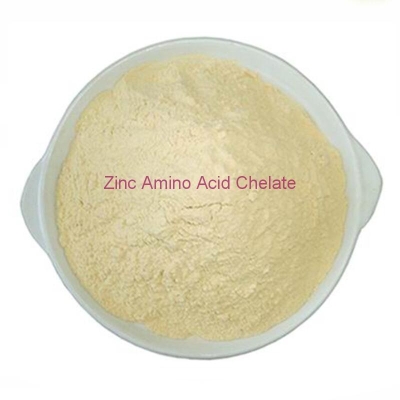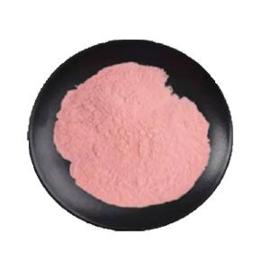-
Categories
-
Pharmaceutical Intermediates
-
Active Pharmaceutical Ingredients
-
Food Additives
- Industrial Coatings
- Agrochemicals
- Dyes and Pigments
- Surfactant
- Flavors and Fragrances
- Chemical Reagents
- Catalyst and Auxiliary
- Natural Products
- Inorganic Chemistry
-
Organic Chemistry
-
Biochemical Engineering
- Analytical Chemistry
- Cosmetic Ingredient
-
Pharmaceutical Intermediates
Promotion
ECHEMI Mall
Wholesale
Weekly Price
Exhibition
News
-
Trade Service
If the success of the HOPE-2 study is replicated in the upcoming multicenter, randomized, placebo-controlled HOPE-3 clinical trial, intravenous cell therapy could become the first FDA-approved treatment for patients with Duchenne's advanced disease
"This therapy is unique in that it addresses two important needs of people with Duchenne disease: physical movement and a healthy heart," said Eduardo Marban, MD, executive director of the Cedars-Sinai Smidt Heart Institute, Mark S.
Duchenne muscular dystrophy is a rare genetic disorder that mainly affects men
The prognosis for patients with Duchenne muscular dystrophy is bleak
"The HOPE-2 trial is a game-changer for muscular dystrophy," said Craig M.
Other experimental treatments target the body's production of dystrophin
"This treatment makes it possible for every DMD patient to benefit, regardless of their exact genetic mutation, which can vary from child to child," Marbán said
The trial was sponsored by San Diego-based biotechnology company Capricor Therapeutics, which has an exclusive worldwide license to the technology and intellectual property and manufactures the cell therapy under the product name CAP-1002
"We are very encouraged by the results of the HOPE-2 study," said Capricor CEO Dr.
The study included 20 boys aged 10 or older with Duchenne muscular dystrophy from various hospitals in the United States
Each patient at trial had what investigators classified as a "mild upper extremity disorder," whose functional significance ranged from being able to raise both arms and elbows at the same time from the head to being able to raise one or two hands to the mouth, but not bringing a cup
"Children with DMD end up relying on their arms for most activities, such as eating and operating wheelchairs," MacDonald said
Eight children were randomly assigned to receive cell therapy and 12 children were randomly assigned to receive placebo
The results showed that after 12 months, patients on CAP-1002 had less loss of upper extremity capacity than patients on placebo
Children given the cell therapy also had improved heart function compared to placebo -- an important finding since heart failure is the leading cause of death in patients with Duchenne muscular dystrophy
The new study in The Lancet is the latest in Marbán's work using the CDC to improve heart function
This therapy appears to be safe
.
One patient developed a severe allergic reaction to CAP-1002 during the second intravenous infusion, requiring epinephrine injections and hospitalization
.
Afterwards, the researchers put the children on pre-treatment medication to reduce the risk of allergic reactions
.
Only one child developed an allergic reaction after implementation, and he did not require medication or hospitalization
.
More research is needed to understand whether the effects of this therapy last beyond 12 months and prolong the lives of children with DMD
.
"Here we show the promise of cell therapy in preventing the progression of heart disease in a rare genetic disease, but we have good reason to believe that this therapy may one day be used in the more common form of heart failure," Marbán said
.
"
Journal Reference :
Craig M McDonald, Eduardo Marbán, Suzanne Hendrix, Nathaniel Hogan, Rachel Ruckdeschel Smith, Michelle Eagle, Richard S Finkel, Cuixia Tian, Joanne Janas, Matthew M Harmelink, Arun S Varadhachary, Michael D Taylor, Kan N Hor, Oscar H Mayer, Erik K Henricson, Pat Furlong, Deborah D Ascheim, Siegfried Rogy, Paula Williams, Linda Marbán, Russell Butterfield, Anne Connolly, Francesco Muntoni, Nanette C.
Joyce, Maya Evans, Mehrdad Abedi, Prasanth Surampudi, Sanjay Jhawar, Jonathan G.
Dayan, Colleen Anthonisen, Erica Goude, Alina Nicorici, Omaid Sarwary, Poonam Prasad, Jayoon Baek, Andrew Newton, Hannah Johnson, Kyle Kusmik, Lauri Filar, Angie Edmondson, Irina Rybalsky, Wendy Chouteau, Anthony F.
Giordano, Aixa Rodriguez, Kristan Anderson, Germaine Wezel, Melisa Vega, Julie Duke, Jorge Collado, Matthew Civitello, Julie Wells,Erika Pyzik, Rebecca Rehborg, Michelle Brown, Jennifer Van Eyk, Russell G.
Rogers.
Repeated intravenous cardiosphere-derived cell therapy in late-stage Duchenne muscular dystrophy (HOPE-2): a multicentre, randomised, double-blind, placebo-controlled, phase 2 trial .
The Lancet , 2022; 399(10329): 1049 DOI: 10.
1016/S0140-6736(22)00012-5 ).







